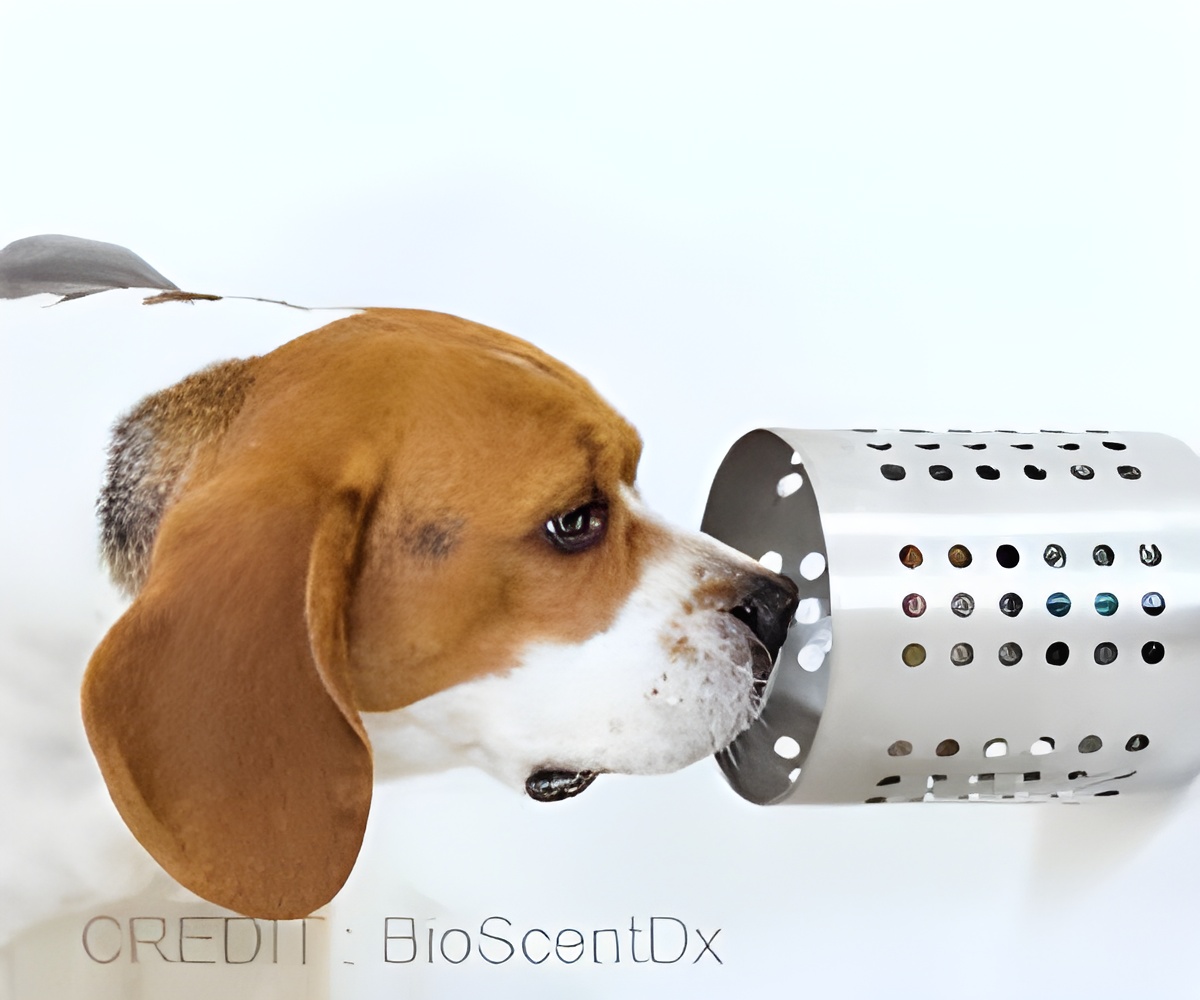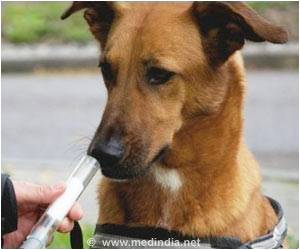Trained sniffer dogs can detect cancer with 97 percent accuracy by just smelling blood samples, reveals a new study.

‘Trained sniffer dogs can detect cancer with 97 percent accuracy by just smelling blood samples. Therefore, canine cancer detection could lead to new noninvasive and inexpensive ways to identify the deadly disease.’





Dogs have smell receptors 10,000 times more accurate than humans', making them highly sensitive to odors we can not perceive. "Although there is no cure for cancer, early detection offers the best hope," said lead researcher Heather Junqueira, at BioScentDx, a US-based healthcare company. "A highly sensitive test for detecting cancer could save thousands of lives and change the way the disease is treated," he said.
For the study, the team used a form of clicker training to teach four beagles to distinguish between normal blood serum and samples from patients with malignant lung cancer.
Although one beagle -- aptly named Snuggles -- was unmotivated to perform, the other three correctly identified lung cancer samples 96.7 percent times and normal samples 97.5 percent times.
"This work is very exciting because it paves the way for further research along two paths, both of which could lead to new cancer-detection tools," said Junqueira.
Advertisement
The results will be presented at the American Society for Biochemistry and Molecular Biology annual meeting in Florida. The team plans to use canine scent detection to develop a non-invasive way of screening for cancer and other life-threatening diseases.
Advertisement














